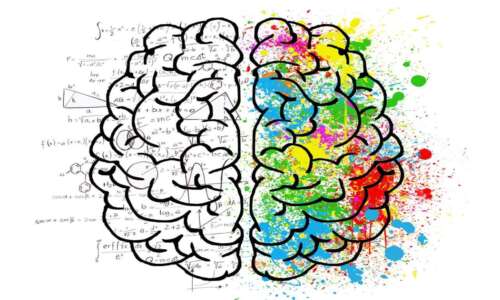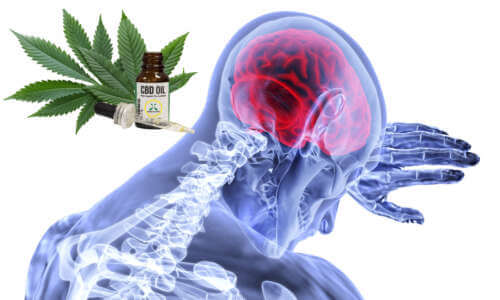CBD and your Brain. How it works.
Disclaimer- Be sure to see your doctor before you start any supplemental regiment. CBD has be found to be safe but consult your doctor or heath professional first. We are not health professionals and do not claim to be. Use this information at your own risk.
The worldwide market has eyes on the new player, CBD. The industry of CBD is growing at an unbelievable rate. A lot of research is continuing because the amount of information on the web is making it difficult to better understand all the benefits of CBD for our well-being. Since you may have already enough information about CBD in specific, we will not stop into explaining more about it. Instead, we will focus on the effects CBD has on your brain in case you use it. To better understand these effects we will try to explain or answer two main questions here:
- Is CBD good for the brain?
- How does CBD interact with the brain?
But, before getting into that we will list the most important properties of CBD regarding our brain. And those properties are:
- Antipsychotic
- Anti-depressive
- Anti-anxiety
- Neuroprotective
- Antioxidant
- Anti-inflammatory
- Non-addictive
- No side effects
Is CBD good for the brain?
CBD and CBD oil, in particular, have various benefits for your brain because they interact with the endocannabinoid system in a positive way. CBD oil has the power to generate new brain cells. These new cells are vital for a healthy brain. These cells are also good for learning and memory. The research done on animals show that CBD oil is just one of the very few substances that can stimulate the forming of new brain cells. This oil can also protect your brain with its neuroprotective effect which protects brain cells from damage. An amazing positive effect because brain cells are most of the time damaged by environmental toxins and oxidation.
With the use of CBD oil, you will feel less stressed because CBD helps ease stress. It does that by stimulating the body’s endocannabinoid system and also lowers the amount of cortisol in the body. Cortisol is the hormone that is released during times of stress. And not just that, CBD can elevate your mood and experience more happiness. It does that by increasing the amount of a neurochemical called serotonin in our brain, which impacts happiness. Another good property for the brain is the effect CBD oil has in easing the inflammation of nerves. And CBD oil does that by increasing the amount of protective anandamide in the brain.
How does CBD interact with the brain?
The endocannabinoid system or ECS shortly consists of many endocannabinoids which work as neurotransmitters throughout our nervous system. The endocannabinoid system is the regulator or helps in regulating a wide range of physiological and cognitive processes in our body. These are pain, stress, appetite, or memory. It is a known fact that CBD derives from cannabis plants which contain hundreds of cannabinoids that bind these ECS receptors. But there are two main receptors:
- CB1 receptors – which regulate pain, mood, appetite, and many other functions.
- CB2 receptors – interact with the immune system and the body and mainly affect inflammation and different types of pain.
We mentioned above a cannabinoid named anandamide. This cannabinoid binds to the CB1 receptors which are responsible for effects, some of them already mentioned above, most importantly the mood. In conclusion, CBD affects our brain in many ways such as maintaining blood flow, managing pain, reducing damage, and has many more positive properties that our brain can benefit from.

What are some direct effects of CBD on your brain?
CBD is already very well-known as a pain-relief for ailments like inflammation, bone diseases, arthritis, seizures, and so on. But one can’t help but ask the question of the effect it has on the brain.
According to Fenocan, a substance reaches the brain only after hitting the bloodstream. After this, it will influence brain activity. It does so by interacting with receptors and neurons. Once it starts the contact with the receptors such as dopamine is where the magic happens.
It can then help the body increase the production of cannabinoids, and this way regulating behavior and cognition. So, this being said, one of the main reasons CBD is so famous is because it targets the serotonin receptors. If you’re not familiar, via this, CBD oil helps with the disorders that cause pain, depression, anxiety and other similar illnesses.
Naturally, our body produces cannabinoids on its own, but taking CBD oil helps restore the body and maintain a ‘normal state’, if we may.
And to top all that, CBD is known to react very strongly with opioid receptors. Why is this important? Well, this way, it tremendously reduces drug craving and it can lower the chances of withdrawal symptoms. This, in other words, is a very organic way of your body healing outside of just prescribing opioids.
How much CBD oil should you take?
The amount of CBD you should take really depends on a vast array of factors. There are a lot of variables that go into the account for you to know how much CBD oil to take. Just to clear things out, before you start taking any kind of CBD, make sure you talk to your doctor about the dosage or any potential health risks. Especially if you’re taking medication that contains CBD, or any sort of seizure medication.
We suggest that some of the factors that determine how much you should take are:
- The bodyweight of yours
- The condition of you’re treatment
- Individual body chemistry
- The concentration of CBD in the said product
It can be hard, though, sometimes to calculate the precise dosage of it. Some products are harder, but some are way simpler. The simple section involves CBD gummies, capsules, and pills. This is because it clearly indicates on the label how much a single serving has CBD inside it.
But, sometimes it’s actually really hard to figure out just how much CBD is on one drop. That’s because the packaging specifies how much CBD the whole package has – not a drop of it.
One drop, putting it into perspective, is about 0,05 milliliters – not a full dropper – just a single drop. This means that a 10 milliliter that says that the bottle contains 1,000 mg of CBD, a single drop contains closely 5 mg of CBD. So, in order to have 20 mg of CBD oil, you have to take – you guessed it – 4 drops.
Find CBD near me here or you can get quality CBD products at the provider below.


